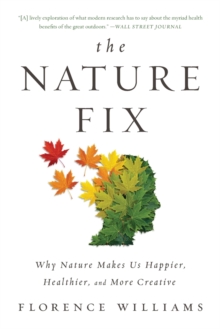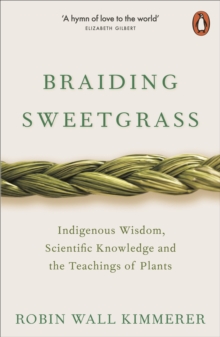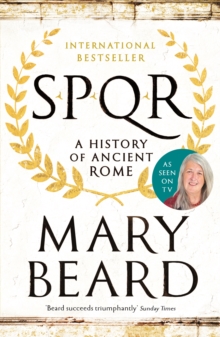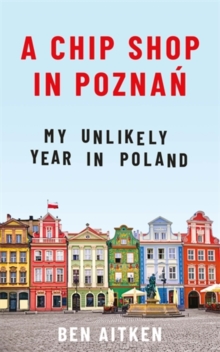Better late than never, here’s what I read in April:

I’m very much appreciating our library service’s expansion of the digital book catalogue over the past year of the pandemic! Florence Williams’ The Nature Fix: Why Nature Makes us Happier, Healthier, and More Creative is my most recent library book and I really enjoyed it. She’s a journalist by background, and this translates to a very readable and non-stuffy book. She looks at all the various research going on around the world into nature’s effect on our mental health and wellbeing, and visits a number of fascinating projects, in the US, Japan, Korea, Finland, Scotland and Singapore, amongst others. I found her writing style just the right blend of curiosity, critique, chattiness, openness, and snark. I’ll probably get myself a copy of this to keep, as I’m sure I’d dip back into it. 4/5.

Frank Kusy is an indie author who has produced a series of 6 travel memoirs, all of which I’ve picked up over the years on Bookbub deals. This book, Life Before Frank: From Cradle to Kibbutz is the prequel memoir to that series, detailing his life before embarking on those travels. I must say he has some cracking anecdotes (including being puked on by Keith Richards, working for a while with Russell Grant the astrologer, and having his hair ruffled by Ronnie Kray when he was a boy, as well as his Polish dad having a connection to Wojciech the bear in WW2), and he’s a good writer too. There are a lot of larger than life characters here – cruel Jesuit teachers, his friend Tristan who was into the occult, his Hungarian mother who is desperate for him to be a good Christian, his dim stepbrother, the cruel work manager at the kibbutz he ends up in towards the end of the book. I did feel sorry for his first girlfriend Addie (who he leaves at the end of the book despite her having supported him for years as he got sacked from job after job), but am interested enough to want to read the other books at some point. 3.5/5.

Nature Writing for the Common Good is a set of essays by previously unpublished authors on the subject of nature, ecological challenges, and connections between people and place, curated by CUSP (Centre for the Understanding of Sustainable Prosperity). As is always the case with this sort of collection there were some that I liked more than others, but all made me stop and think. Some dealt with returning to childhood haunts, others with recovery from trauma, others with watching a particular natural phenomenon (eg the seal pupping on the Lincolnshire and Norfolk coasts). There was also one poem about so-called invasive species which mirrored some of the thoughts I’ve been having in my own writing. The collection is available at https://www.cusp.ac.uk/projects/arts/naturewriting/ 3.5/5.

Braiding Sweetgrass by Robin Wall Kimmerer, subtitled “Indigenous Wisdom, Scientific Knowledge, and the Teachings of Plants”, is a beautiful, beautiful book. The author is from the Citizen Potawatomi Nation, and is also a scientist (botanist), and in this book she looks at how indigenous wisdom and teachings about the natural world can enhance and inform scientific knowledge. The main takeaway for me was the importance of gratitude, reciprocity, generosity and respect in our interactions with the environment and with others. And the writing is stunning – the links she makes between indigenous teaching and world events really stopped me in my tracks (especially towards the end when she talks about the start of the war in Iraq and the migration of salamanders to their spawning pools – I just had my mouth open in awe reading that). Highly, highly recommended. 5/5.

SPQR by Professor Mary Beard is a sweeping history of the first millennium of the Roman Empire. It’s quite a chunkster of a book, hence taking quite a long time to read, but I very much enjoyed it. As well as covering kings and senators and emperors, she also presents what is known about more ‘normal’ people and society throughout the Empire. What I liked about this, more than the actual history itself, was her discussion throughout as to the relative strength (and amount) of available evidence, and so how confident we can be about it, what can be claimed with some certainty and what is more speculative. I wish more history books would do that. As an aside, every time she mentioned Gauls I must admit to instantly thinking of Asterix, but that’s my fault not hers! A very good read, even with the mental interruptions of a small band of indomitable Gauls! 4.5/5.

A Chip Shop in Poznan: My Unlikely Year in Poland by Ben Aitken is a travelogue detailing the author’s time in Poland, which included the Brexit vote in the UK while he was there. He’d seen more and more Poles moving west to the UK and this made him curious about the country. Initially he gets a job teaching English (I had a lot of sympathy with him about that; I taught English in Romania and probably wasn’t any better than him at it!), but then ends up peeling potatoes at a restaurant, having a frustrating will-they-won’t-they non-relationship with a Polish woman, Anita, and travelling round to various parts of the country. He muses on Brexit, and on the experience of living abroad; I can’t say there’s anything massively profound here, but I enjoyed the read. 3.5/5.

The Full Cupboard of Life is the 5th installment in the No. 1 Ladies Detective Agency series by Alexander McCall Smith, set in Botswana. I always like these for a couple of hours of not very demanding reading, with likeable characters and mostly not very high stakes. I think this one is my favourite so far, I did laugh a couple of times, especially at the subplot of Mr J.L.B. Matekoni being coerced into doing a charity parachute jump. 4/5.
